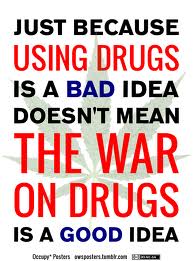Barton, A (2011). Illicit drugs: Use and control. 2nd ed. Abingdon: Routledge. 52-59.
Blackman. S, (2004), Chilling Out: The Cultural Politics of Substance Consumption, Youth and Drug Chilling Out: The Cultural Politics of Substance Consumption, Youth and Drug England: Open University Press
Burkemper.E, (2010), Practicing Social Justice, London: Routledge
Conrad. P, (2007), The Medicalization of Society: On the Transformation of Human Conditions Into Treatable Disorders, USA: John Hopkins University press
Davies. J, (1992), The Myth of Addiction, Amsterdam: OPA
Dunn.D, (2011), The Psychologically Literate Citizen: Foundations and Global Perspectives, New York: Oxford University Press
Eldredge. D, (2000), Ending the war on drugs: A solution for America, USA: Bridge Works publishing
Gaines,L.K, Kremling,J (2013). Drugs, Crime, and Justice: Contemporary Perspectives. 3rd ed. United States : Waveland Press. 83.
Gov, (2013), “Reducing drugs misuse and dependence”, Available at: https://www.gov.uk/government/policies/reducing-drugs-misuse-and-dependence, (Accessed 19/3/15)
Gov.uk (2014). Drug Misuse: Findings from the 2012 to 2013 Crime Survey for England and Wales. [Online] Available: https://www.gov.uk/government/publications/drug-misuse-findings-from-the-2012-to-2013-csew/drug-misuse-findings-from-the-2012-to-2013-crime-survey-for-england-and-wales. Last accessed 25th March 2015.
McHoul, A. W and Grace, Wendy (1995). A Foucault primer: discourse, power and the subject. London: UCL Press.
Moatti. J, (2000),AIDS in Europe: New Challenges for the Social Sciences, USA: Routledge
NHS, (2009), Breaking the chain: The role of drug treatment in tackling crime, Available at: http://www.nta.nhs.uk/uploads/nta_criminaljustice_0809.pdf, (Accessed: 19/03/15)
Rolles. S, (2012), The Alternative World Drug Report: Counting the Costs of the War on Drugs, UK: Count the costs
Siegel. L, (2009). Criminology, “Social process theories”, USA: Thomson
The Guardian. (2015) UK should begin decriminalising drugs, say Richard Branson and Nick Clegg. [Online] Available: http://www.theguardian.com/politics/2015/mar/03/uk-should-begin-decriminalising-drugs-richard-branson-nick-clegg. Last accessed 20th March 2015.
Torfing. J et al, (2012), Interactive Governance: Advancing the Paradigm, New York: Oxford University Press
Vulliamy. E, (July 2011), Nixon’s ‘war on drugs’ began 40 years ago, and the battle is still raging, Available at: http://www.theguardian.com/society/2011/jul/24/war-on-drugs-40-years, (accessed 20/3/15)
Williams. L, (2013), Changing Lives, Changing Drug Journeys: Drug Taking Decisions from adolescence to adulthood, “Theorizing about drugs policies”, London: Routledge





